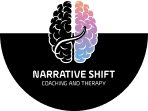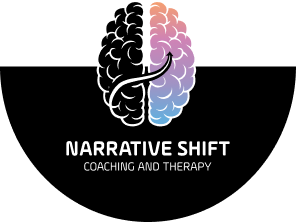

Skip to content
Blog Post
Understanding Neurodivergence and Co-Occurring Disorders: A Path Forward
The connection between neurodivergence and substance use deserves careful attention. Many neurodivergent individuals turn to substances as a form of self-medication for overwhelming emotions, social anxiety, or focus challenges.
This risk is particularly heightened during adolescence and early adulthood when peer pressure, the desire to fit in, and limited coping strategies can create vulnerability.
Supportive approaches include:
-
- Open conversations about risks and underlying needs
- Clear boundaries paired with compassionate understanding
- Professional guidance when patterns become concerning
Integration and Healing
Understanding the connection between neurodivergence and co-occurring conditions isn’t just about recognizing challenges—it’s about opening pathways to more effective support and treatment.
When we see the whole picture, we can develop approaches that honor the unique strengths and needs of neurodivergent minds while addressing the very real impacts of anxiety, depression, and other co-occurring conditions.
This integrated understanding leads to more effective therapy, more supportive parenting, and ultimately, more fulfilling lives for neurodivergent individuals navigating these complex intersections.
Neurodivergent children may develop behavioral patterns that are labeled as Oppositional Defiant Disorder (ODD) or Conduct Disorder. Understanding these patterns through a neurodivergent lens reveals important insights:
What appears as defiance may actually be:
-
- Difficulty with transitions or unexpected changes
- Sensory overload leading to emotional dysregulation
- Communication challenges that frustrate both parent and child
Effective parenting approaches include:
-
- Maintaining open, compassionate communication even during difficult moments
- Creating predictable structure while allowing flexibility where needed
- Seeking specialized support to develop tailored family strategies
Substance Use Considerations
The connection between neurodivergence and substance use deserves careful attention. Many neurodivergent individuals turn to substances as a form of self-medication for overwhelming emotions, social anxiety, or focus challenges.
This risk is particularly heightened during adolescence and early adulthood when peer pressure, the desire to fit in, and limited coping strategies can create vulnerability.
Supportive approaches include:
-
- Open conversations about risks and underlying needs
- Clear boundaries paired with compassionate understanding
- Professional guidance when patterns become concerning
Integration and Healing
Understanding the connection between neurodivergence and co-occurring conditions isn’t just about recognizing challenges—it’s about opening pathways to more effective support and treatment.
When we see the whole picture, we can develop approaches that honor the unique strengths and needs of neurodivergent minds while addressing the very real impacts of anxiety, depression, and other co-occurring conditions.
This integrated understanding leads to more effective therapy, more supportive parenting, and ultimately, more fulfilling lives for neurodivergent individuals navigating these complex intersections.
Anxiety is perhaps the most common co-occurring condition with neurodivergence. For neurodivergent individuals, anxiety isn’t just worry—it’s often an intense, full-body experience that can manifest in several ways:
Generalized Anxiety:
-
- A persistent loop of worry that can be difficult to interrupt, often amplified by the neurodivergent brain’s tendency to notice patterns and details others might miss.
Panic Experiences:
-
- Sudden, overwhelming episodes that engage the body’s full fight-or-flight response, sometimes triggered by sensory overload or unexpected changes.
Social Anxiety:
-
- Intensified fear of judgment in social situations, often connected to past experiences of misunderstanding or rejection due to neurodivergent traits.
Obsessive Patterns:
-
- Intrusive thoughts paired with compulsive behaviors that temporarily reduce anxiety but create their own challenges.
Effective support strategies involve a combination of:
-
- Mindfulness practices to help stay present and interrupt worry cycles
- Structured therapeutic support tailored to neurodivergent processing
- Careful consideration of medication options when appropriate
Depression Through a Neurodivergent Lens
Depression manifests differently in neurodivergent individuals and can be particularly challenging to identify. The two main presentations include:
Major Depression:
-
- Beyond sadness, this involves profound energy depletion, difficulty performing daily tasks, and a sense of disconnection that can be particularly destabilizing for neurodivergent individuals who may already feel different from others.
Persistent Low Mood:
-
- A chronic, lower-intensity depression that often presents with frustration, lack of motivation, and a sense of being stuck. This can be easily confused with executive functioning challenges.
Moving toward healing involves:
-
- Professional support that understands neurodivergent experiences
- Integrated approaches that address both symptoms and underlying patterns
- Mindfulness techniques to manage overwhelming emotions and recognize small victories
Parenting Challenges: When Neurodivergence Meets Behavioral Patterns
Neurodivergent children may develop behavioral patterns that are labeled as Oppositional Defiant Disorder (ODD) or Conduct Disorder. Understanding these patterns through a neurodivergent lens reveals important insights:
What appears as defiance may actually be:
-
- Difficulty with transitions or unexpected changes
- Sensory overload leading to emotional dysregulation
- Communication challenges that frustrate both parent and child
Effective parenting approaches include:
-
- Maintaining open, compassionate communication even during difficult moments
- Creating predictable structure while allowing flexibility where needed
- Seeking specialized support to develop tailored family strategies
Substance Use Considerations
The connection between neurodivergence and substance use deserves careful attention. Many neurodivergent individuals turn to substances as a form of self-medication for overwhelming emotions, social anxiety, or focus challenges.
This risk is particularly heightened during adolescence and early adulthood when peer pressure, the desire to fit in, and limited coping strategies can create vulnerability.
Supportive approaches include:
-
- Open conversations about risks and underlying needs
- Clear boundaries paired with compassionate understanding
- Professional guidance when patterns become concerning
Integration and Healing
Understanding the connection between neurodivergence and co-occurring conditions isn’t just about recognizing challenges—it’s about opening pathways to more effective support and treatment.
When we see the whole picture, we can develop approaches that honor the unique strengths and needs of neurodivergent minds while addressing the very real impacts of anxiety, depression, and other co-occurring conditions.
This integrated understanding leads to more effective therapy, more supportive parenting, and ultimately, more fulfilling lives for neurodivergent individuals navigating these complex intersections.
The connection between neurodivergence and substance use deserves careful attention. Many neurodivergent individuals turn to substances as a form of self-medication for overwhelming emotions, social anxiety, or focus challenges.
This risk is particularly heightened during adolescence and early adulthood when peer pressure, the desire to fit in, and limited coping strategies can create vulnerability.
Supportive approaches include:
-
- Open conversations about risks and underlying needs
- Clear boundaries paired with compassionate understanding
- Professional guidance when patterns become concerning
Integration and Healing
Understanding the connection between neurodivergence and co-occurring conditions isn’t just about recognizing challenges—it’s about opening pathways to more effective support and treatment.
When we see the whole picture, we can develop approaches that honor the unique strengths and needs of neurodivergent minds while addressing the very real impacts of anxiety, depression, and other co-occurring conditions.
This integrated understanding leads to more effective therapy, more supportive parenting, and ultimately, more fulfilling lives for neurodivergent individuals navigating these complex intersections.
Anxiety is perhaps the most common co-occurring condition with neurodivergence. For neurodivergent individuals, anxiety isn’t just worry—it’s often an intense, full-body experience that can manifest in several ways:
Generalized Anxiety:
-
- A persistent loop of worry that can be difficult to interrupt, often amplified by the neurodivergent brain’s tendency to notice patterns and details others might miss.
Panic Experiences:
-
- Sudden, overwhelming episodes that engage the body’s full fight-or-flight response, sometimes triggered by sensory overload or unexpected changes.
Social Anxiety:
-
- Intensified fear of judgment in social situations, often connected to past experiences of misunderstanding or rejection due to neurodivergent traits.
Obsessive Patterns:
-
- Intrusive thoughts paired with compulsive behaviors that temporarily reduce anxiety but create their own challenges.
Effective support strategies involve a combination of:
-
- Mindfulness practices to help stay present and interrupt worry cycles
- Structured therapeutic support tailored to neurodivergent processing
- Careful consideration of medication options when appropriate
Depression Through a Neurodivergent Lens
Depression manifests differently in neurodivergent individuals and can be particularly challenging to identify. The two main presentations include:
Major Depression:
-
- Beyond sadness, this involves profound energy depletion, difficulty performing daily tasks, and a sense of disconnection that can be particularly destabilizing for neurodivergent individuals who may already feel different from others.
Persistent Low Mood:
-
- A chronic, lower-intensity depression that often presents with frustration, lack of motivation, and a sense of being stuck. This can be easily confused with executive functioning challenges.
Moving toward healing involves:
-
- Professional support that understands neurodivergent experiences
- Integrated approaches that address both symptoms and underlying patterns
- Mindfulness techniques to manage overwhelming emotions and recognize small victories
Parenting Challenges: When Neurodivergence Meets Behavioral Patterns
Neurodivergent children may develop behavioral patterns that are labeled as Oppositional Defiant Disorder (ODD) or Conduct Disorder. Understanding these patterns through a neurodivergent lens reveals important insights:
What appears as defiance may actually be:
-
- Difficulty with transitions or unexpected changes
- Sensory overload leading to emotional dysregulation
- Communication challenges that frustrate both parent and child
Effective parenting approaches include:
-
- Maintaining open, compassionate communication even during difficult moments
- Creating predictable structure while allowing flexibility where needed
- Seeking specialized support to develop tailored family strategies
Substance Use Considerations
The connection between neurodivergence and substance use deserves careful attention. Many neurodivergent individuals turn to substances as a form of self-medication for overwhelming emotions, social anxiety, or focus challenges.
This risk is particularly heightened during adolescence and early adulthood when peer pressure, the desire to fit in, and limited coping strategies can create vulnerability.
Supportive approaches include:
-
- Open conversations about risks and underlying needs
- Clear boundaries paired with compassionate understanding
- Professional guidance when patterns become concerning
Integration and Healing
Understanding the connection between neurodivergence and co-occurring conditions isn’t just about recognizing challenges—it’s about opening pathways to more effective support and treatment.
When we see the whole picture, we can develop approaches that honor the unique strengths and needs of neurodivergent minds while addressing the very real impacts of anxiety, depression, and other co-occurring conditions.
This integrated understanding leads to more effective therapy, more supportive parenting, and ultimately, more fulfilling lives for neurodivergent individuals navigating these complex intersections.
Depression manifests differently in neurodivergent individuals and can be particularly challenging to identify. The two main presentations include:
Major Depression:
-
- Beyond sadness, this involves profound energy depletion, difficulty performing daily tasks, and a sense of disconnection that can be particularly destabilizing for neurodivergent individuals who may already feel different from others.
Persistent Low Mood:
-
- A chronic, lower-intensity depression that often presents with frustration, lack of motivation, and a sense of being stuck. This can be easily confused with executive functioning challenges.
Moving toward healing involves:
-
- Professional support that understands neurodivergent experiences
- Integrated approaches that address both symptoms and underlying patterns
- Mindfulness techniques to manage overwhelming emotions and recognize small victories
Parenting Challenges: When Neurodivergence Meets Behavioral Patterns
Neurodivergent children may develop behavioral patterns that are labeled as Oppositional Defiant Disorder (ODD) or Conduct Disorder. Understanding these patterns through a neurodivergent lens reveals important insights:
What appears as defiance may actually be:
-
- Difficulty with transitions or unexpected changes
- Sensory overload leading to emotional dysregulation
- Communication challenges that frustrate both parent and child
Effective parenting approaches include:
-
- Maintaining open, compassionate communication even during difficult moments
- Creating predictable structure while allowing flexibility where needed
- Seeking specialized support to develop tailored family strategies
Substance Use Considerations
The connection between neurodivergence and substance use deserves careful attention. Many neurodivergent individuals turn to substances as a form of self-medication for overwhelming emotions, social anxiety, or focus challenges.
This risk is particularly heightened during adolescence and early adulthood when peer pressure, the desire to fit in, and limited coping strategies can create vulnerability.
Supportive approaches include:
-
- Open conversations about risks and underlying needs
- Clear boundaries paired with compassionate understanding
- Professional guidance when patterns become concerning
Integration and Healing
Understanding the connection between neurodivergence and co-occurring conditions isn’t just about recognizing challenges—it’s about opening pathways to more effective support and treatment.
When we see the whole picture, we can develop approaches that honor the unique strengths and needs of neurodivergent minds while addressing the very real impacts of anxiety, depression, and other co-occurring conditions.
This integrated understanding leads to more effective therapy, more supportive parenting, and ultimately, more fulfilling lives for neurodivergent individuals navigating these complex intersections.
Anxiety is perhaps the most common co-occurring condition with neurodivergence. For neurodivergent individuals, anxiety isn’t just worry—it’s often an intense, full-body experience that can manifest in several ways:
Generalized Anxiety:
-
- A persistent loop of worry that can be difficult to interrupt, often amplified by the neurodivergent brain’s tendency to notice patterns and details others might miss.
Panic Experiences:
-
- Sudden, overwhelming episodes that engage the body’s full fight-or-flight response, sometimes triggered by sensory overload or unexpected changes.
Social Anxiety:
-
- Intensified fear of judgment in social situations, often connected to past experiences of misunderstanding or rejection due to neurodivergent traits.
Obsessive Patterns:
-
- Intrusive thoughts paired with compulsive behaviors that temporarily reduce anxiety but create their own challenges.
Effective support strategies involve a combination of:
-
- Mindfulness practices to help stay present and interrupt worry cycles
- Structured therapeutic support tailored to neurodivergent processing
- Careful consideration of medication options when appropriate
Depression Through a Neurodivergent Lens
Depression manifests differently in neurodivergent individuals and can be particularly challenging to identify. The two main presentations include:
Major Depression:
-
- Beyond sadness, this involves profound energy depletion, difficulty performing daily tasks, and a sense of disconnection that can be particularly destabilizing for neurodivergent individuals who may already feel different from others.
Persistent Low Mood:
-
- A chronic, lower-intensity depression that often presents with frustration, lack of motivation, and a sense of being stuck. This can be easily confused with executive functioning challenges.
Moving toward healing involves:
-
- Professional support that understands neurodivergent experiences
- Integrated approaches that address both symptoms and underlying patterns
- Mindfulness techniques to manage overwhelming emotions and recognize small victories
Parenting Challenges: When Neurodivergence Meets Behavioral Patterns
Neurodivergent children may develop behavioral patterns that are labeled as Oppositional Defiant Disorder (ODD) or Conduct Disorder. Understanding these patterns through a neurodivergent lens reveals important insights:
What appears as defiance may actually be:
-
- Difficulty with transitions or unexpected changes
- Sensory overload leading to emotional dysregulation
- Communication challenges that frustrate both parent and child
Effective parenting approaches include:
-
- Maintaining open, compassionate communication even during difficult moments
- Creating predictable structure while allowing flexibility where needed
- Seeking specialized support to develop tailored family strategies
Substance Use Considerations
The connection between neurodivergence and substance use deserves careful attention. Many neurodivergent individuals turn to substances as a form of self-medication for overwhelming emotions, social anxiety, or focus challenges.
This risk is particularly heightened during adolescence and early adulthood when peer pressure, the desire to fit in, and limited coping strategies can create vulnerability.
Supportive approaches include:
-
- Open conversations about risks and underlying needs
- Clear boundaries paired with compassionate understanding
- Professional guidance when patterns become concerning
Integration and Healing
Understanding the connection between neurodivergence and co-occurring conditions isn’t just about recognizing challenges—it’s about opening pathways to more effective support and treatment.
When we see the whole picture, we can develop approaches that honor the unique strengths and needs of neurodivergent minds while addressing the very real impacts of anxiety, depression, and other co-occurring conditions.
This integrated understanding leads to more effective therapy, more supportive parenting, and ultimately, more fulfilling lives for neurodivergent individuals navigating these complex intersections.
The Narrative:
For many neurodivergent individuals, daily life involves navigating not just the unique wiring of their brains, but also the weight of anxiety, depression, or mood disorders that so often accompany neurodivergence. The constant interplay between these experiences can make everyday tasks feel overwhelming. Traditional approaches might address one aspect while overlooking how these conditions interact and influence each other, leaving many feeling misunderstood and without effective support strategies.
The Shift:
Understanding the connection between neurodivergence and co-occurring conditions opens the door to more comprehensive and effective approaches. Rather than viewing these as separate challenges, we can recognize their interconnected nature and develop strategies that address the whole person. By shifting our perspective, we can transform overwhelming challenges into manageable paths forward.
The Neural Intersection
Think of the neurodivergent brain as having its own unique operating system. This different wiring affects how information is processed, emotions are experienced, and the world is understood. When co-occurring conditions enter the picture, they interact with this system in specific ways.
As Justine Ruotolo, founder of Narrative Shift Coaching and Therapy, explains: “It’s like having a six-cylinder car that only runs on four cylinders. The system is imbalanced, creating struggles that require unique approaches.” This imbalance often manifests in disrupted neurotransmitter systems, particularly affecting serotonin and dopamine levels, which play crucial roles in mood regulation, focus, and emotional processing.
Understanding Anxiety in Neurodivergent Experience
The connection between neurodivergence and substance use deserves careful attention. Many neurodivergent individuals turn to substances as a form of self-medication for overwhelming emotions, social anxiety, or focus challenges.
This risk is particularly heightened during adolescence and early adulthood when peer pressure, the desire to fit in, and limited coping strategies can create vulnerability.
Supportive approaches include:
-
- Open conversations about risks and underlying needs
- Clear boundaries paired with compassionate understanding
- Professional guidance when patterns become concerning
Integration and Healing
Understanding the connection between neurodivergence and co-occurring conditions isn’t just about recognizing challenges—it’s about opening pathways to more effective support and treatment.
When we see the whole picture, we can develop approaches that honor the unique strengths and needs of neurodivergent minds while addressing the very real impacts of anxiety, depression, and other co-occurring conditions.
This integrated understanding leads to more effective therapy, more supportive parenting, and ultimately, more fulfilling lives for neurodivergent individuals navigating these complex intersections.
Neurodivergent children may develop behavioral patterns that are labeled as Oppositional Defiant Disorder (ODD) or Conduct Disorder. Understanding these patterns through a neurodivergent lens reveals important insights:
What appears as defiance may actually be:
-
- Difficulty with transitions or unexpected changes
- Sensory overload leading to emotional dysregulation
- Communication challenges that frustrate both parent and child
Effective parenting approaches include:
-
- Maintaining open, compassionate communication even during difficult moments
- Creating predictable structure while allowing flexibility where needed
- Seeking specialized support to develop tailored family strategies
Substance Use Considerations
The connection between neurodivergence and substance use deserves careful attention. Many neurodivergent individuals turn to substances as a form of self-medication for overwhelming emotions, social anxiety, or focus challenges.
This risk is particularly heightened during adolescence and early adulthood when peer pressure, the desire to fit in, and limited coping strategies can create vulnerability.
Supportive approaches include:
-
- Open conversations about risks and underlying needs
- Clear boundaries paired with compassionate understanding
- Professional guidance when patterns become concerning
Integration and Healing
Understanding the connection between neurodivergence and co-occurring conditions isn’t just about recognizing challenges—it’s about opening pathways to more effective support and treatment.
When we see the whole picture, we can develop approaches that honor the unique strengths and needs of neurodivergent minds while addressing the very real impacts of anxiety, depression, and other co-occurring conditions.
This integrated understanding leads to more effective therapy, more supportive parenting, and ultimately, more fulfilling lives for neurodivergent individuals navigating these complex intersections.
Depression manifests differently in neurodivergent individuals and can be particularly challenging to identify. The two main presentations include:
Major Depression:
-
- Beyond sadness, this involves profound energy depletion, difficulty performing daily tasks, and a sense of disconnection that can be particularly destabilizing for neurodivergent individuals who may already feel different from others.
Persistent Low Mood:
-
- A chronic, lower-intensity depression that often presents with frustration, lack of motivation, and a sense of being stuck. This can be easily confused with executive functioning challenges.
Moving toward healing involves:
-
- Professional support that understands neurodivergent experiences
- Integrated approaches that address both symptoms and underlying patterns
- Mindfulness techniques to manage overwhelming emotions and recognize small victories
Parenting Challenges: When Neurodivergence Meets Behavioral Patterns
Neurodivergent children may develop behavioral patterns that are labeled as Oppositional Defiant Disorder (ODD) or Conduct Disorder. Understanding these patterns through a neurodivergent lens reveals important insights:
What appears as defiance may actually be:
-
- Difficulty with transitions or unexpected changes
- Sensory overload leading to emotional dysregulation
- Communication challenges that frustrate both parent and child
Effective parenting approaches include:
-
- Maintaining open, compassionate communication even during difficult moments
- Creating predictable structure while allowing flexibility where needed
- Seeking specialized support to develop tailored family strategies
Substance Use Considerations
The connection between neurodivergence and substance use deserves careful attention. Many neurodivergent individuals turn to substances as a form of self-medication for overwhelming emotions, social anxiety, or focus challenges.
This risk is particularly heightened during adolescence and early adulthood when peer pressure, the desire to fit in, and limited coping strategies can create vulnerability.
Supportive approaches include:
-
- Open conversations about risks and underlying needs
- Clear boundaries paired with compassionate understanding
- Professional guidance when patterns become concerning
Integration and Healing
Understanding the connection between neurodivergence and co-occurring conditions isn’t just about recognizing challenges—it’s about opening pathways to more effective support and treatment.
When we see the whole picture, we can develop approaches that honor the unique strengths and needs of neurodivergent minds while addressing the very real impacts of anxiety, depression, and other co-occurring conditions.
This integrated understanding leads to more effective therapy, more supportive parenting, and ultimately, more fulfilling lives for neurodivergent individuals navigating these complex intersections.
Anxiety is perhaps the most common co-occurring condition with neurodivergence. For neurodivergent individuals, anxiety isn’t just worry—it’s often an intense, full-body experience that can manifest in several ways:
Generalized Anxiety:
-
- A persistent loop of worry that can be difficult to interrupt, often amplified by the neurodivergent brain’s tendency to notice patterns and details others might miss.
Panic Experiences:
-
- Sudden, overwhelming episodes that engage the body’s full fight-or-flight response, sometimes triggered by sensory overload or unexpected changes.
Social Anxiety:
-
- Intensified fear of judgment in social situations, often connected to past experiences of misunderstanding or rejection due to neurodivergent traits.
Obsessive Patterns:
-
- Intrusive thoughts paired with compulsive behaviors that temporarily reduce anxiety but create their own challenges.
Effective support strategies involve a combination of:
-
- Mindfulness practices to help stay present and interrupt worry cycles
- Structured therapeutic support tailored to neurodivergent processing
- Careful consideration of medication options when appropriate
Depression Through a Neurodivergent Lens
Depression manifests differently in neurodivergent individuals and can be particularly challenging to identify. The two main presentations include:
Major Depression:
-
- Beyond sadness, this involves profound energy depletion, difficulty performing daily tasks, and a sense of disconnection that can be particularly destabilizing for neurodivergent individuals who may already feel different from others.
Persistent Low Mood:
-
- A chronic, lower-intensity depression that often presents with frustration, lack of motivation, and a sense of being stuck. This can be easily confused with executive functioning challenges.
Moving toward healing involves:
-
- Professional support that understands neurodivergent experiences
- Integrated approaches that address both symptoms and underlying patterns
- Mindfulness techniques to manage overwhelming emotions and recognize small victories
Parenting Challenges: When Neurodivergence Meets Behavioral Patterns
Neurodivergent children may develop behavioral patterns that are labeled as Oppositional Defiant Disorder (ODD) or Conduct Disorder. Understanding these patterns through a neurodivergent lens reveals important insights:
What appears as defiance may actually be:
-
- Difficulty with transitions or unexpected changes
- Sensory overload leading to emotional dysregulation
- Communication challenges that frustrate both parent and child
Effective parenting approaches include:
-
- Maintaining open, compassionate communication even during difficult moments
- Creating predictable structure while allowing flexibility where needed
- Seeking specialized support to develop tailored family strategies
Substance Use Considerations
The connection between neurodivergence and substance use deserves careful attention. Many neurodivergent individuals turn to substances as a form of self-medication for overwhelming emotions, social anxiety, or focus challenges.
This risk is particularly heightened during adolescence and early adulthood when peer pressure, the desire to fit in, and limited coping strategies can create vulnerability.
Supportive approaches include:
-
- Open conversations about risks and underlying needs
- Clear boundaries paired with compassionate understanding
- Professional guidance when patterns become concerning
Integration and Healing
Understanding the connection between neurodivergence and co-occurring conditions isn’t just about recognizing challenges—it’s about opening pathways to more effective support and treatment.
When we see the whole picture, we can develop approaches that honor the unique strengths and needs of neurodivergent minds while addressing the very real impacts of anxiety, depression, and other co-occurring conditions.
This integrated understanding leads to more effective therapy, more supportive parenting, and ultimately, more fulfilling lives for neurodivergent individuals navigating these complex intersections.




